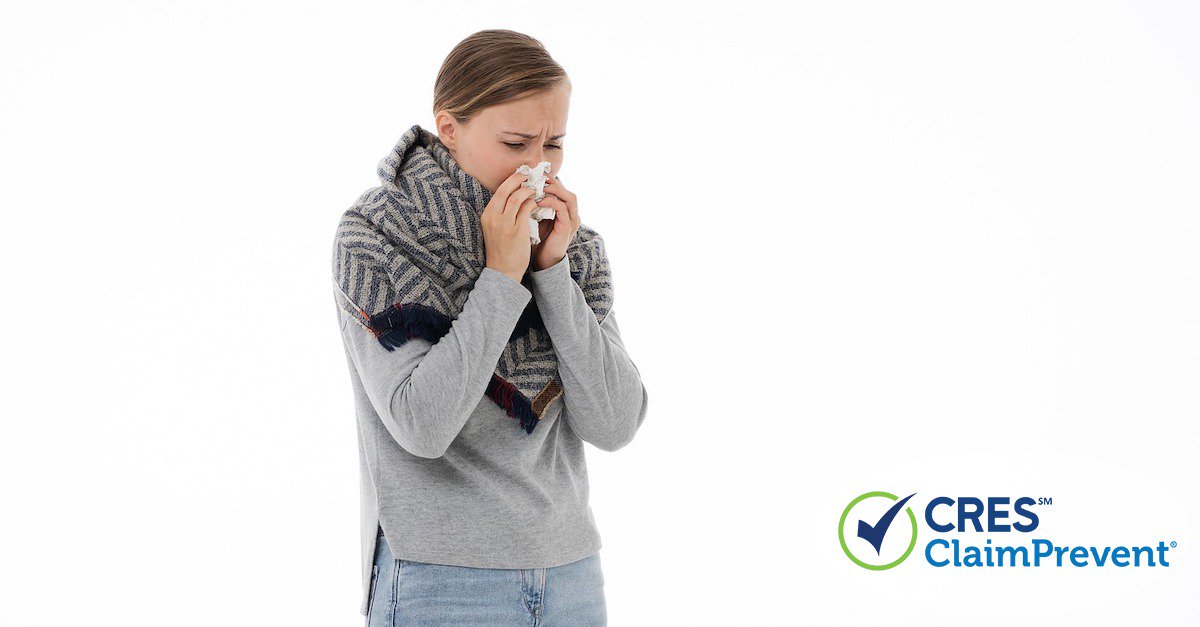According to the Asthma and Allergy Foundation of America, allergies are the sixth leading cause of chronic illness in the USA and more than 50 million Americans experience allergies each year. It is widely known that people who have allergies or illnesses are particularly vulnerable during this pandemic as they are more prone to experiencing a severe case of COVID-19 if they catch the virus.
Here are some strategies to help you deal with clients who have allergies and illnesses effectively during the pandemic.
Limit The Number of In-Person Contacts and Meetings
The CDC (Center for Disease Control and Prevention) recommends that people at higher risk of severe illness limit their contact with other people as much as possible. If you are dealing with a client who has severe allergies or illnesses, try and arrange as much as possible for your contact to be by telephone, video chat or email instead of in-person meetings.
The pandemic has already transformed the way we work and it has taught us, if nothing else, that face-to-face meetings are not the only way of doing business. There are numerous tools at your fingertips to facilitate remote communication with your clients, including FaceTime, Skype, and Zoom. Yes, your client may wish to actually see a property in person before buying it, but, you can do all of the groundwork at a safe distance to minimize the risks to your vulnerable clients.
Reduce the Risk of Transmission
When it does come to those necessary in-person interactions, there are measures you can put in place to minimize the risk of transmission of COVID-19. Here are some strategies:
- Limit the number of people your vulnerable client needs to come into contact with. For example, meet privately — not in a busy coffee shop.
- There is some evidence that suggests COVID-19 is less likely to be transmitted outdoors than in confined indoor spaces. Keep this in mind and save those longer chats about properties for the outdoors to keep safe. But also remember – just being outside doesn’t make you 100% risk-free so don’t be complacent.
- Keep your distance and maintain a 6 feet distance away from each other at all times.
- Adjust your office or meeting spaces to allow for social distancing.
- Avoid handshakes and instead, use verbal greetings
- Wear a mask yourself and have a stash of new masks available for clients to use and keep.
- Keep to a schedule and limit the time you spend with clients in-person. The CDC suggests that community transmission is more likely when people are within 6 feet of each other for periods longer than 15 minutes.
- Wash your hands with soapy water before and after every meeting with a client and use hand sanitizer in-between times to prevent the spread of germs and bacteria.
- Clean frequently touched surfaces before and after your client inspects the property. You can prevent your client from touching any surfaces by opening all the doors, turning on all of the lights, and advising them in advance not to touch anything.
- Remind your clients about hand hygiene and use disposable paper towels for hand-drying along with a no-touch rubbish bin to prevent surface transmission.
Be Aware of Other Allergens
A large percentage of daily media coverage these days is about COVID-19, so you can be forgiven if you haven’t thought much lately about other allergens that may pose a risk to your vulnerable clients with allergies and illnesses. But, did you know that approximately one in 50 Americans has an anaphylactic allergy, according to the Journal of Allergy and Clinical Immunology?
The most common allergies are trees, grasses and pollen, mold spores, dust mites, cockroaches and skin flakes from dogs, cats and rodents. The National Institutes of Health has stated that 90% of homes in the USA have three or more detectable allergens and 73% of homes have at least one allergen at an elevated level.
The fact is that COVID-19 is not the only issue you need to protect your vulnerable clients from. To reduce the risk of an allergic reaction for your clients from one of these non-COVID-related allergens, you can easily put these measures in place when showing properties:
- Advise the seller to make arrangements so that pets are not on the property at the time of inspection, and ensure the house has been thoroughly cleaned before every inspection.
- Remove shoes before entering the home or consider the use of shoe covers
- Ask your client to be sure to have their prescribed medication on hand, such as an EpiPen, in case of an unforeseen reaction
- Have emergency contact numbers on hand
- Keep your first aid certification up-to-date so you can be useful in an emergency
- Follow all of the precautions listed for reducing the risk of transmission of COVID-19 – these measures will also help to keep clients safe from other allergens and germs
More about managing risks at showings and open houses.
Managing Your Risk
Dealing with vulnerable members of the public can be a risky business, so you need to ensure you have sufficient insurance coverage to protect yourself and your real estate enterprise. What if your client contracts COVID-19 during a home inspection? What if they have an allergic reaction while inspecting a property? There are any number of ways you could find yourself facing a lawsuit.
With CRES E&O + ClaimPrevent® you can be confident because you’ll have a team of expert legal professionals who are available to help you pre-claim!
As specialists in insurance solutions for real estate professionals, you can be certain you’re in good hands with CRES. We have access to more E&O options than just about anyone, and can find you the best coverage for the best value (we’re part of one of the largest insurance brokers in the world).
